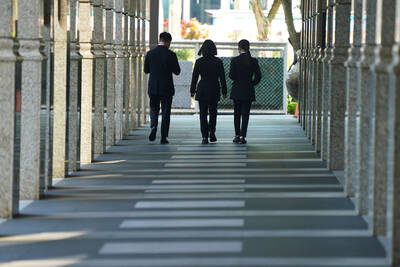First there's shock tinged with disbelief. A moment of wonder follows. Then, a desperate scramble to rack your brains and work out just how you've been had. There's no denying the effects of a good magic trick. From the great escapes of Harry Houdini and the surreal mental trickery of Derren Brown to the conjurors at children's parties, the appeal is universal.
"Magic's been around for a very long time and it improves over time," says Richard Wiseman, a professor of psychology at Hertfordshire University, UK. "What you're looking at when you see a finished piece of magic is a great deal of expertise, and I think psychologists have a lot to learn from that."
But, not content with just enjoying the tricks, psychologists are now studying their effects on the mind to work out how we handle the floods of sensory information coming into our brains and process it into a mental picture of the world around us. Magic is a deception, a disruption of that orderly mental picture where things seem to float in mid-air or coins and cards vanish in front of our eyes. Scientists now believe that, by mapping out how our brains are deceived, they could even help to unlock some of the mysteries of consciousness itself.
"Over the last five years, there's been a reawakening as we look at things like change blindness (a failure to see large changes in a visual scene) and at the fact that consciousness is a construction and may even be an illusion," says Wiseman, himself an accomplished magician and member of the Magic Circle. "Now there's a recognition that magicians are doing something very special."
Some of the founders of modern psychology were fascinated by magicians: throughout the 1890s, Alfred Binet, inventor of the modern IQ test, and Max Dessoir wrote about the ways in which magicians used suggestion and misdirected attention to get their illusions to work.
In 1896, Joseph Jastrow published articles in Science on the mecha-nics of some tricks by contemporary master magicians. But, aside from describing what the magicians were doing, they were at a loss to explain why magic tricks had the effects they did on the audience. As a result, interest in studying the psychology of magic faded for nearly a century.
But, as Wiseman says, a renaissance is now in full swing.
Magic is all about convincing others that the impossible has just happened. And that deception is achieved with a high degree of skill and showmanship.
"We're starting to realize that magicians have a lot of implicit know-ledge about how we perceive the world around us because they have to deceive us in terms of controlling attention, exploiting the assumptions we make when we do and don't notice a change in our environment," says Wiseman. "There is an enormous amount of really detailed instruction on how to perform magic. People are always blown away by how detailed a description you'll have."
A card trick that lasts four or five minutes, for example, might have 20 pages of detailed text to describe exactly where to look, what to say, what to do and so on. And a lot of the understanding of a trick has to be from the perspective of the audience.
While the magician's dexterity is important, the audience is also a vital participant in the deception. After all, it is in their minds that the illusion is created. "Magicians seem to be able to carry out secret actions in front of their audience without being spotted. I'm interested in why people don't perceive those actions," says Gustav Kuhn, a psychologist at Durham University.
A simple example of misdirection is used in the coin drop trick. "What you're doing there is pretending to take the coin from one hand to the other but, in fact, leaving it in the original hand," says Wiseman. "What's important is that you're looking where you want the audience to look. You're not looking at the coin, you're looking at the empty hand. In terms of movement, you're moving the hand that doesn't contain the coin to attract people's attention over to that hand."
Another trick, where a magician pretends to throw a ball up in the air, takes the misdirection a step further. "People often experience the ball moving up in the air even though there is no ball present," says Kuhn. "They claim to see a ball moving but obviously it's not there so it must be in their mind." Psychologists can use these tricks to catch a glimpse into how our minds interpret the world around us.
"Magicians are manipulating your consciousness. They are showing you something impossible," says Wiseman. "They're getting you to construct a narrative, which simply isn't true. So that means they know how to make you aware of certain things and blind to other things. What I'm hoping is that magic, this entertainment vehicle that has been around for a long time, will give us a real insight into the deep mysteries of consciousness."
Our brains filter out a huge amount of the mass of sensory input flooding in from our environment. Kuhn explains that we see what we expect to see and what our brains are interested in. "Our visual representation of the world is much more impoverished than we would assume. People can be looking at something without being aware of it. Perception doesn't just involve looking at an object but attending to it."
In Kuhn's recent work, he performed a trick where a cigarette seems to disappear. It involved no sleight of hand or secret. It was a simple case of dropping the cigarette into his lap. "It happens right in front of the spectator's eyes but I misdirect their attention away from the cigarette," says Kuhn.
While his spectators watched, they wore eye trackers (essentially a couple of cameras that monitor eye movement and provide an exact location of where a person is looking in a scene).
It is known that we only receive high-quality information from the area we are fixated on, right in the center of our field of view.
If you stretch out your arm, it is about two thumbs' width at the center of your vision -- everything else is pretty much blurred. The way we compensate for this is to move our eyes around to fill in the gaps and create a better picture of the world around us.
Kuhn's results, to be published in the journal Perception in the next few months, showed that simply staring at the location of the deception was not enough for people to discover how the trick happened.
"People could be looking very close to where the cigarette was being dropped without even seeing it," he says. "Other people were looking quite far away but they did not actually spot the cigarette."
"What it shows is just how much of the picture in our head of our surroundings is a massive construction, based on expectations, what we think is important, what we normally encounter and so on," says Wiseman. "And that's what magicians are very good at exploiting."
Of course, magic is more than just surprise, so the researchers will be looking for something more. "When you're watching magic, there is just a split second when you're in disbelief and that's what we're looking for, that exact moment," he says. "The magic spot."

JUNE 30 to JULY 6 After being routed by the Japanese in the bloody battle of Baguashan (八卦山), Hsu Hsiang (徐驤) and a handful of surviving Hakka fighters sped toward Tainan. There, he would meet with Liu Yung-fu (劉永福), leader of the Black Flag Army who had assumed control of the resisting Republic of Formosa after its president and vice-president fled to China. Hsu, who had been fighting non-stop for over two months from Taoyuan to Changhua, was reportedly injured and exhausted. As the story goes, Liu advised that Hsu take shelter in China to recover and regroup, but Hsu steadfastly

Taiwan’s politics is mystifying to many foreign observers. Gosh, that is strange, considering just how logical and straightforward it all is. Let us take a step back and review. Thanks to the Chinese Nationalist Party (KMT) and the Taiwan People’s Party (TPP), starting this year people will once again have Christmas Day off work. In 2002, the Scrooges in the Democratic Progressive Party (DPP) said “bah, humbug” to that. The holiday is not actually Christmas, but rather Constitution Day, celebrating the enactment of the Constitution of the Republic of China (ROC) on December 25, 1947. The DPP and the then pan-blue dominated legislature

Focus Taiwan reported last week that government figures showed unemployment in Taiwan is at historic lows: “The local unemployment rate fell 0.02 percentage points from a month earlier to 3.30 percent in May, the lowest level for the month in 25 years.” Historical lows in joblessness occurred earlier this year as well. The context? Labor shortages. The National Development Council (NDC) expects that Taiwan will be short 400,000 workers by 2030, now just five years away. The depth of the labor crisis is masked by the hundreds of thousands of migrant workers which the economy absolutely depends on, and the

If you’ve lately been feeling that the “Jurassic Park” franchise has jumped an even more ancient creature — the shark — hold off any thoughts of extinction. Judging from the latest entry, there’s still life in this old dino series. Jurassic World Rebirth captures the awe and majesty of the overgrown lizards that’s been lacking for so many of the movies, which became just an endless cat-and-mouse in the dark between scared humans against T-Rexes or raptors. Jurassic World Rebirth lets in the daylight. Credit goes to screenwriter David Koepp, who penned the original Jurassic Park, and director Gareth Edwards, who knows